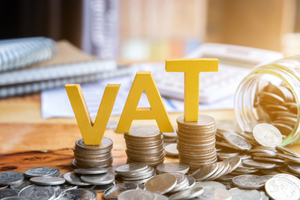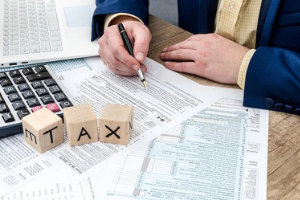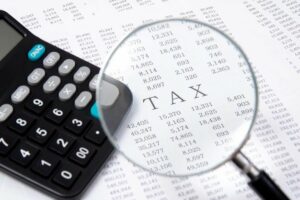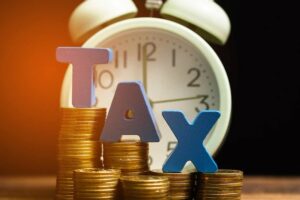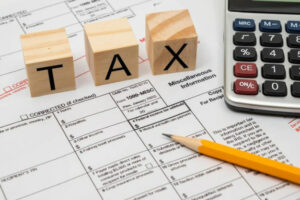EXCISE TAX
ADVISORY IN
DUBAI, ABU
DHABI & THE UAE
Our Excise Tax advisory service in Dubai, Abu Dhabi and the UAE is part of our tax consultancy services in Dubai, Abu Dhabi and the UAE.
Excise Tax is an indirect tax set on specific goods; it is imposed within government policies rather than being an international tax imposed across countries. It is primarily considered as a business tax; a tax paid by the businesses; producers, importers, or an intermediary; and not by the consumer although it usually induces an indirect increase in price for consumers. It can be set and paid as a fixed percentage rate assessed on the value of certain goods referred to as “ad valorem” or as a specific fixed amount.
Excise tax is typically imposed in the country where and at the time when the excise goods are consumed; applied on the retail price affecting the price of the excisable goods for final consumers; thus, referred to as a consumption tax.
WHO IS EXEMPT FROM PAYING EXCISE TAX?
- Diplomatic and consular bodies, international organisations, and heads and members of diplomatic and consular corporations.
- Excise goods brought in by travellers entering the country provided that these goods are of non-commercial use, and they are within the allowance specified in the Customs Law.
- Excise goods sold in departures Duty-free shops and onboard consumption.
TYPES OF EXCISE GOODS IN UAE
- Tobacco related products.
- Soft drinks.
- Energy drinks.
- Sweetened drinks.
- Electronic devices and tools related to smoking, vaping and similar activities.
- Liquid consumed in electronic devices used in smoking, vaping and similar activities.
WHAT IS THE EXCISE TAX RATE IN UAE?
In 2017, United Arab Emirates has released its excise tax regulations and rates in aim to reduce consumption of unhealthy commodities while also inducing revenues for the UAE government to be spent on beneficial public services. The implementation and administration of Excise Tax is under the authority of the Federal Tax Authority (FTA).
All businesses that engage in trading and production of the below excise goods are subject to the following excise tax rates:
Excise tax is applicable on businesses engaged in the following activities:
- Import of excise goods.
- Production of excise goods that are consumed in the country.
- Hold a stock of excise goods for business purposes in the country.
- Release of excise goods from a designated zone.
PAYMENT OF EXCISE TAX
Filing and payment for excise tax return is completed electronically only through the FTA portal.
The taxable person is required to file for excise tax return within 15 days following the end of each tax period and submit the applicable declaration form from the below list:
- Excise Tax import declaration form.
- Excise Tax production declaration form.
- Excise Tax release from designated zone not requiring customs clearance declaration form.
- Deductible Excise Tax declaration form.
The taxable person should check the information provided prior to submission, and then submit the excise periodical returns, pay the excise tax liability 15 days after the end of the calendar month, and maintain excise tax records.
In case a taxable person files an excise return, and the value of the deductible tax exceeds the value of excise tax payable, then the taxpayer is entitled to apply for a refund of the excess refundable tax.
VIOLATION OF DISCLOSURE OF EXCISE TAX
EXEMPTIONS FROM EXCISE TAX
On 21 June 2022, the Federal Tax Authority announced a Public Clarification EXTP007 on excise goods, which states the scenarios where relief from excise tax can be granted for excise goods within an excise tax designated zone that are found to be deficient, have shortage in their quantity, considered to be wastage of excise foods, or goods that were intended to be destroyed.
However, relief from accounting for, filing and payment of excise tax on goods will be granted where the following scenarios stand, and the taxable person follows and is in-compliance to the process outlined by the Federal Tax Authority.
For destroy and disposal of excise goods, the taxable person is required to first obtain an approval from the Federal Tax Authority and provide sufficient proof and explanation to the reason the goods need to be disposed. The authority may require inspecting the goods prior to granting the approval.
Whereas for deficiency, shortage, and wastage of excise goods; the relief will be granted when the warehouse keeper notifies the Federal Tax Authority within 30 days of discovering the deficiency in, shortage and wastage of the excise goods, along with a sufficient proof of the circumstances leading to the deficiency, shortage or wastage. The authority may provide approval subject to a legitimate cause such as natural shortage and wastage, shortage and wastage during production or force majeure.
WHAT ARE THE RISKS RELATED TO EXCISE TAX SERVICES IN THE UAE?
Through careful planning and professional advice, the minimal risks connected to Taxes in the UAE can be reduced. You can handle the Tax legislations and procedures easily with the assistance of professional consultants, ensuring adherence to legislations and reducing potential risks.
For an expert consultation, contact Creation Business Consultants via email [email protected] or call +971 4 878 6240 today.
WHEN WILL EXCISE TAX BE REFUNDED IN THE UAE?
In the UAE, Excise Tax refunds can be processed under specific conditions as outlined by the Federal Tax Authority (FTA). Excise Tax refunds are typically applicable in the following scenarios:
- Export of Excise Goods: If you export excise goods outside the UAE, you may be eligible for an Excise Tax refund. You must provide proof of export, such as customs documentation and Exit Certificate to qualify for the refund.
- Re-export of Excise Goods: If excise goods are re-exported from the UAE, a refund can be claimed. This is applicable when goods are imported and then re-exported without being used or sold within the UAE.
- Usage in Production: If excise goods are used in the production of other excise goods, and the final product is subject to excise tax, a refund can be claimed for the tax paid on the original goods used in production.
- Non-compliant Goods: If excise goods are found to be non-compliant or defective, resulting in their destruction or disposal under FTA supervision, a refund can be claimed for the tax paid on these goods.
To apply for an Excise Tax refund in the UAE, businesses must follow these steps:
- Contact Creation Business Consultants: The first step is to contact our tax experts for a free initial consultation. Our team will assess your situation and determine your eligibility for an Excise Tax refund.
- Submit a Refund Request: We will assist you in completing the refund request through the FTA’s portal, including all required documentation and details supporting the refund claim.
- Provide Supporting Documentation: Our experts will help you gather and provide all necessary documents, such as invoices, customs declarations, proof of export or re-export, and any other relevant documents as specified by the FTA.
- FTA Review: We will handle the review process with the FTA, ensuring that your refund request and supporting documentation meet all compliance requirements. And provide any additional documents FTA might ask about.
- Refund Approval: Once approved, the refund will be credited to your registered bank account in the FTA portal Creation Business Consultants will keep you informed throughout the process to ensure a smooth and timely refund.
WHO IS ELIGIBLE TO CLAIM AN EXCISE TAX REFUND IN THE UAE?
In the UAE, certain individuals and businesses may be eligible to claim an Excise Tax refund under specific conditions as defined by the Federal Tax Authority (FTA). Eligibility for claiming an Excise Tax refund typically includes the following categories:
- Exporters of Excise Goods: Businesses that export excise goods outside the UAE can claim a refund on the Excise Tax paid, provided they can furnish proof of export, such as customs documentation.
- Re-exporters of Excise Goods: Businesses that re-export excise goods from the UAE without using or selling them within the country are eligible for a refund. This requires proof of re-export.
- Producers Using Excise Goods: If a business uses excise goods in the production of other excise goods that are also subject to Excise Tax, they can claim a refund for the tax paid on the initial goods used in production.
- Distributors of Non-compliant or Defective Goods: If excise goods are found to be non-compliant or defective and are subsequently destroyed or disposed of under the supervision of the FTA, the business can claim a refund for the tax paid on these goods.
- Tourists: Under certain conditions, tourists may be eligible for a refund of the Excise Tax paid on excise goods purchased in the UAE if they are taking these goods out of the country.
- Designated Zones: Businesses operating in designated zones that meet specific criteria may also be eligible for Excise Tax refunds on goods that are moved out of these zones.
WHAT DOCUMENTATION IS REQUIRED TO SUPPORT AN EXCISE TAX REFUND CLAIM IN THE UAE?
To support an Excise Tax refund claim in the UAE, businesses must provide specific documentation as required by the Federal Tax Authority (FTA). Proper documentation ensures that the refund process is smooth and compliant with regulations. The necessary documents typically include:
- Invoices: Original invoices that show the Excise Tax paid on the goods for which you are claiming a refund. These invoices should detail the goods and the amount of tax paid.
- Customs Documentation and Exit Certificate: Proof of export or re-export, such as customs declarations, bills of lading, or airway bills, demonstrating that the excise goods have been exported or re-exported out of the UAE.
- Proof of Payment: Evidence of payment for the goods and the Excise Tax, such as bank statements or payment receipts.
- Production Records: For businesses claiming refunds on excise goods used in production, detailed records showing the use of these goods in the production of other excise goods, along with the Excise Tax paid on the initial goods.
- Destruction or Disposal Records: For non-compliant or defective goods that have been destroyed or disposed of documentation such as FTA-supervised destruction certificates or disposal records is required.
- Re-export Documentation: For goods that are re-exported, additional documentation proving that the goods were not used or sold within the UAE, such as inventory records and re-export certificates.
- Designated Zone Documentation: For businesses in designated zones, documents proving that goods were moved out of these zones, such as transfer records and FTA approvals.
CAN I APPEAL IF MY EXCISE TAX REFUND APPLICATION IS REJECTED IN THE UAE?
Yes, if your Excise Tax refund application is rejected in the UAE, you have the right to appeal the decision. The Federal Tax Authority (FTA) has established a clear process for taxpayers to challenge decisions they believe are incorrect. Here are the steps to appeal a rejected Excise Tax refund application:
- Review the Rejection Notice: Carefully review the rejection notice provided by the FTA. The notice will include the reasons for the rejection, which will help you understand any issues or deficiencies in your original application.
- Contact Creation Business Consultants: The first step is to contact Creation Business Consultants tax experts. Our team will help you understand the reasons for the rejection and determine the best course of action for your appeal.
- Prepare Your Appeal: We will assist you in preparing a comprehensive appeal letter addressing the reasons for the rejection. This includes gathering any additional documentation or evidence that supports your claim and correcting any errors or omissions in your original application.
- Submit the Appeal: Submit your appeal to the FTA through their e-services portal within 20 business days from the date of the rejection notice. Ensure that your appeal is complete and includes all necessary supporting documents.
- FTA Review: The FTA will review your appeal and the additional documentation provided. This process may take several weeks, and the FTA may request further information or clarification during their review.
- Decision Notification: The FTA will notify you of their decision regarding your appeal. If the appeal is successful, the FTA will process your Excise Tax refund. If the appeal is denied, you may have further options for recourse, including escalation to the Tax Dispute Resolution Committee.
CAN I CLAIM A REFUND FOR EXCISE TAX PAID ON GOODS THAT WERE USED DOMESTICALLY IN THE UAE?
Generally, in the UAE, Excise Tax is not refundable for goods that are used or consumed domestically. Excise Tax is imposed on specific goods that are considered harmful to human health or the environment, such as tobacco products, energy drinks, and carbonated beverages. Once these goods are sold and consumed within the UAE, the Excise Tax paid on them is typically non-refundable.
However, there are certain exceptional circumstances under which a refund of Excise Tax paid on goods used domestically may be considered:
- Use in the Production of Other Excise Goods: If the excise goods are used as raw materials in the production of other excise goods, and the final product is also subject to Excise Tax, a refund may be claimed for the tax paid on the initial goods used in production.
- Goods Found to be Non-compliant or Defective: If excise goods are found to be non-compliant with standards or defective, resulting in their destruction or disposal under the supervision of the Federal Tax Authority (FTA), a refund may be claimed for the tax paid on these goods.
- Designated Zone Movements: If the excise goods are moved out of a designated zone under specific conditions approved by the FTA, a refund may be applicable.


